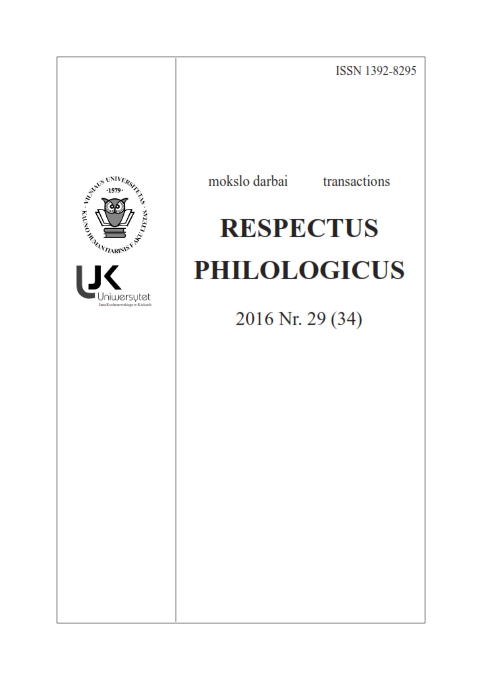ANTIKINĖ „LENGVOJI POEZIJA“: EPIGRAMOS YPATUMAI
ANCIENT “SIMPLE POETRY”: PECULIARITIES OF THE EPIGRAM
Author(s): Skirmantė BiržietienėSubject(s): Studies of Literature, Other Language Literature, Theory of Literature
Published by: Vilniaus Universiteto Leidykla
Keywords: genre; epigram; elegiac distich; argutia; wit; Marcus Valerius Martialis;
Summary/Abstract: The main literary genres were formed in the ancient literature. Aristotle in his Poetic identifies three “modes” of narration: epic, lyric and drama, and defines the differences between them. The article deals with one of them, i.e., the ancient lyric, specifically, the epigrammatic poetry. In the title described as “simple” poetry, it may sound odd, ambiguous, but as well intriguing, because it reflects poets and audience’s communication, while the investigator’s perspective provides the opportunity to reason about serious and “other” forms of poetry; the features are better seen in the comparison. The opposition has been discussed by the ancient poets. As an example serves the epigrammatic poetry of Marcus Valerius Martialis, the Roman poet of the 1st century. The poet discusses his object, i.e., epigram, as a form of poetry. He became the example for all the later poetics describing the main features of an ideal epigram. Reading the best examples, it is possible to easily perceive the basic requirements of the epigram: a short form exposure to real life, simple, true-life subject and simple, unsophisticated, even obscene language, and the most important is argutia (the verbal trickery), which creates the wit, which is hidden in the last words of the poem.
Journal: Respectus Philologicus
- Issue Year: 2016
- Issue No: 29(34)
- Page Range: 57-64
- Page Count: 8
- Language: Lithuanian

